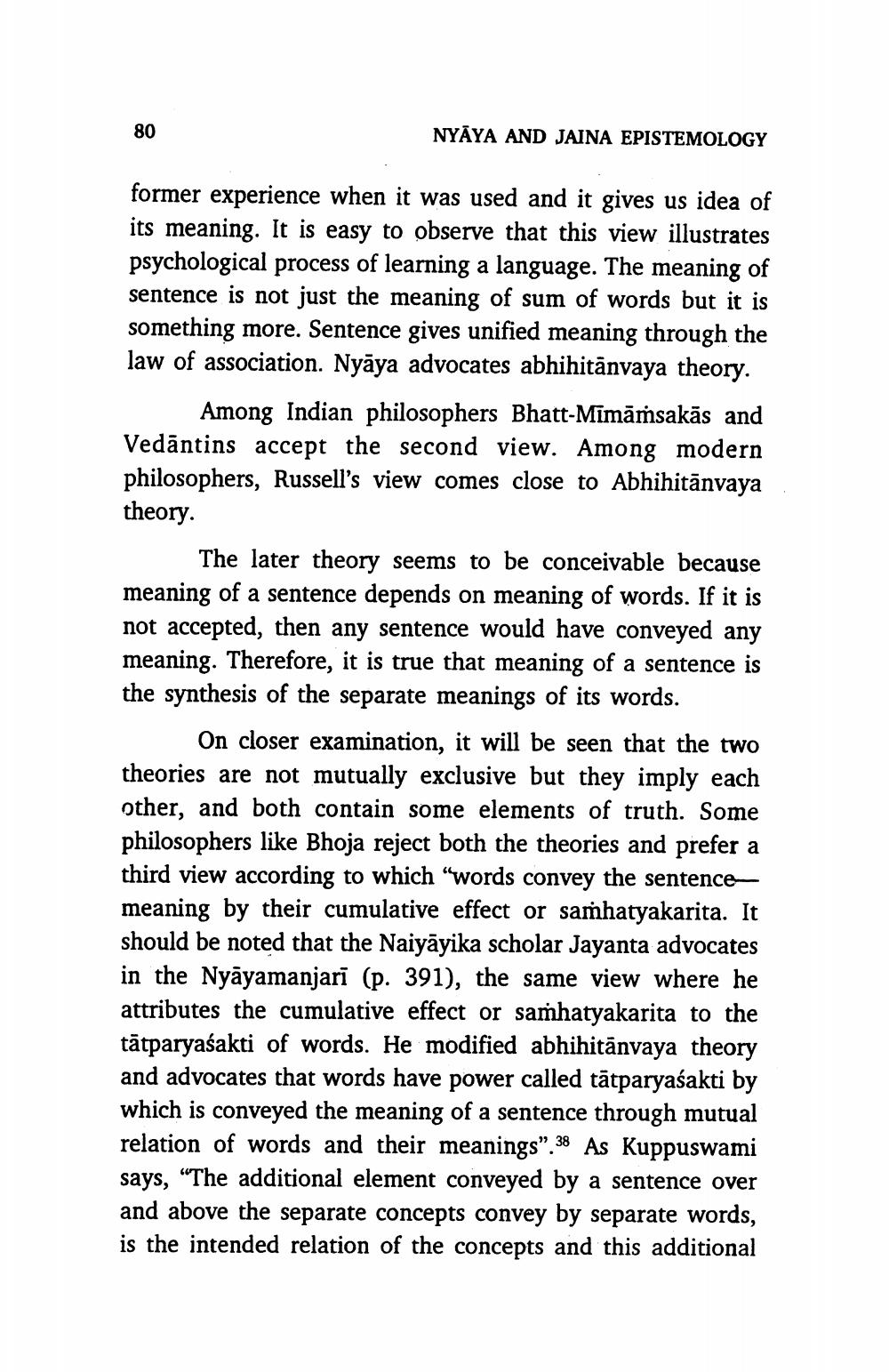________________
NYAYA AND JAINA EPISTEMOLOGY
former experience when it was used and it gives us idea of its meaning. It is easy to observe that this view illustrates psychological process of learning a language. The meaning of sentence is not just the meaning of sum of words but it is something more. Sentence gives unified meaning through the law of association. Nyāya advocates abhihitānvaya theory.
Among Indian philosophers Bhatt-Mimāṁsakās and Vedāntins accept the second view. Among modern philosophers, Russell's view comes close to Abhihitānvaya theory.
The later theory seems to be conceivable because meaning of a sentence depends on meaning of words. If it is not accepted, then any sentence would have conveyed any meaning. Therefore, it is true that meaning of a sentence is the synthesis of the separate meanings of its words.
On closer examination, it will be seen that the two theories are not mutually exclusive but they imply each other, and both contain some elements of truth. Some philosophers like Bhoja reject both the theories and prefer a third view according to which “words convey the sentencemeaning by their cumulative effect or saṁhatyakarita. It should be noted that the Naiyāyika scholar Jayanta advocates in the Nyāyamanjarī (p. 391), the same view where he attributes the cumulative effect or sashatyakarita to the tātparyasakti of words. He modified abhihitānvaya theory and advocates that words have power called tātparyasakti by which is conveyed the meaning of a sentence through mutual relation of words and their meanings”. 38 As Kuppuswami says, "The additional element conveyed by a sentence over and above the separate concepts convey by separate words, is the intended relation of the concepts and this additional




